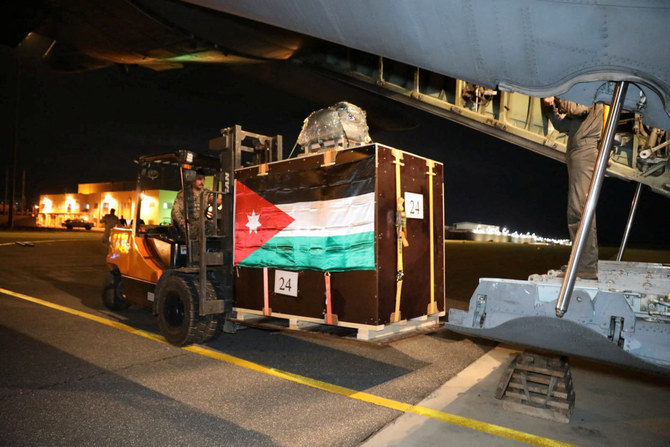
Commercial activity is unlikely to show much improvement during the Eid Al-Adha season as people further tighten their spending
GAZA CITY: Samira Shamali will not buy Eid clothes for her four children because of worsening economic conditions in Gaza, with businesses struggling to stay afloat, rising poverty and unemployment, and skyrocketing prices.
Commercial activity is unlikely to show much improvement during the Eid Al-Adha season as people further tighten their spending, say analysts.
“There are more (important) priorities than new clothes for Eid,” said Shamali. “I will only buy basic necessities so that we can celebrate Eid and receive guests. Prices are all on the rise, and our income is limited.”
The 47-year-old mother’s oldest child is 16 and the youngest seven.
In contrast, Mahmoud Al-Talouli, 33, has decided he will buy clothes for his children. He was out shopping with his wife and two daughters on Omar Al-Mukhtar Street in the Rimal area in search of suitable clothing.
“My two daughters are young, and they don’t know if the economic conditions are tough or good, so I can’t (have) Eid pass without buying them clothes,” said Al-Talouli, who is a carpenter and works for daily wages.
“The economic conditions are difficult, but the children should rejoice. Aren’t the difficult conditions and wars they witness sufficient (unhappiness) for them? At least (they should have a) celebration during the Eid period.”
The Gaza Strip has unemployment of over 45 percent due to the Israeli blockade.
About 80 percent of its population depends on food aid provided by UNRWA and international institutions, according to official UN reports.
Although Israel allowed about 12,000 workers from the Gaza Strip to work in the country after the last war in May last year, they were not better-paying jobs.
Hamed Jad, an economist and director of Al-Ayyam newspaper’s office in the Gaza Strip, believes that these workers are paying off old debt, and because of the uncertain job situation, are forced to save what little money is left over.
“The number of workers is limited, and the Gaza Strip has been (having these) harsh economic conditions for many years. Those who have money are afraid of the future. The political and security conditions are unstable,” Jad told Arab News.
The economy of the Gaza Strip depends mainly on the salaries of those working for the Palestinian Authority and the Hamas government in Gaza.
About 50,000 workers and retirees in the Gaza Strip receive salaries and pensions from the Palestinian Authority, while about 40,000 are employed by the Hamas government in Gaza.
The Palestinian Authority has not yet paid the salaries of its employees in the West Bank and Gaza Strip because of the economic crisis. Payments are likely to be made on Wednesday, Palestinian Prime Minister Muhammad Shtayyeh announced on Monday.
Basem Skaik, a women’s clothing merchant, stood in front of the door of his shop, complaining about the lack of customers during the Eid season.
“The economy in Gaza has been suffering for years, (there is) security instability, high prices for most commodities, and instability in the exchange rate of the dollar, which increases prices for the consumer, reasons that may limit (people’s) purchasing (power),” Skaik told Arab News.
“We are merchants, but at the same time we live in Gaza and we also have needs. Many merchants and shop owners closed the doors of their stores, and some of them were imprisoned because they were unable to pay their debts,” he added.












